Everything You Need to Know About Freehold Estates
When you are looking to purchase a property or become a real estate agent, it is important that you understand the different types of freehold estates. One of the most common types of property ownership is a freehold estate. In this blog post, we will discuss what a freehold estate is and how it differs from other types of freehold estates.
What is a Freehold Estate?

A freehold estate is a property that has the right to be owned by an individual or group of people for as long as they live. In other words, if you own a freehold estate then you have full control over it and can pass it down from one generation to another without any restrictions, outside of government powers.
The Three Types Of Freehold Estates
The three types of freehold estates are:
- Fee Simple Absolute
- Fee Simple Defeasible
- Life Estate (Not as Common)
Fee Simple Absolute
The most common freehold estate type is Fee Simple Absolute, which gives an owner indefinite ownership with no restrictions.
A fee simple absolute is considered to be “ownership forever”. This type of estate is the most common form of property ownership and it allows for the owner to do whatever they want with the property including selling, renting, or passing it down to their heirs. There are no restrictions on how long the owner can hold onto the property and there are no limitations on what they can do with it.
The only thing that can happen to a fee simple absolute is if the owner sells or gifts it to someone else. If this happens, then the new owner will become the full and complete owner of the property.
There are however some government powers that can supersede fee simple interest. These include police power, escheat, eminent domain, and the most common, taxation.
Fee Simple Defeasible
Fee Simple Defeasible is very similar to Fee Simple Absolute, with the main difference being that there are conditions that have been placed on the new titleholder of the subject property. The two types of conditions used for defeasible estates are fee simple subject to a condition subsequent and the more common, fee simple determinable.
An example of a ‘fee simple determinable’ would include being gifted a piece of land, but only if it is used for a foster home or other specific use. If it ever ceases to be used for this purpose the property could revert back to the original owner or their heirs.
An example of a ‘fee simple subject to a condition subsequent’ would be a more specific condition that the property is not to be used for. Using a home as a large party house, or drug lab could be a reason to lose the title.
Life Estate
Life estates are not all that common but can be used to allow a specific person to live out their days at a property as a “life tenant”, while still passing the property on to other specific heirs.
As a quick example, if Bob wants to leave his property to Sarah while she is alive, but then wants the property to go to his brother, he could leave the property to Sarah as a Life Estate. Sarah would be able to sell, lease, or mortgage the property while she is alive, but at her time of death, the property would pass onto Bob’s brother or other assigned heirs.
Freehold Estate vs Less Than FreeHold Estate

While Freehold estates are the most common type of property estate, there is another type known as less than freehold.
The main difference between the two is that a ‘less than freehold’ does not have full control over their property and cannot pass it down to anyone but themselves. A leaseholder or tenant under contract would fall under this category. While they may own the property for many years, at some point their ownership will end and they will be unable to pass it on to heirs, other family members, or friends.
Less Than Freehold Estate Types Include:
- Estate at Will
- Estate at Sufferance
- Periodic Tenancy
- Estate for Years
Find Information About These Terms and Others You Should Know Here







